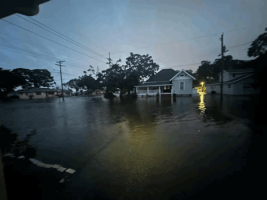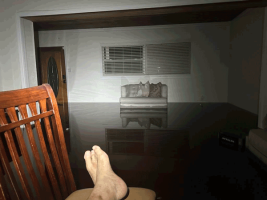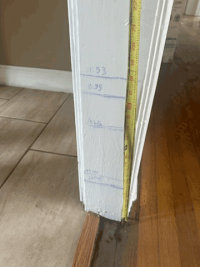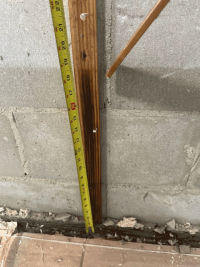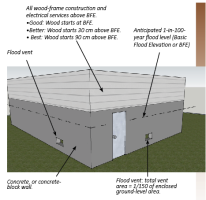jar546
CBO
First, a warning to everyone. This website has a strict no-politics policy that will be enforced. This story is about policy and how it is affected by politicians and groups that lobby for change, something we all deal with on a daily basis. I want to discuss this particular story, how it affects the residents, and what can be done to slow down the erosion of building codes. Do not turn this into a political party vs party discussion. And, if you are going to comment that this story invites political discussion ( ICE ), don't comment. We know that already. Just keep it civil, respectful, and about the subject at hand. Are we someone clear on this?
There is a link to this article and the bottom and a news clip from WPTV's YouTube channel.
By David Hodges
Updated: Oct. 5, 2024 at 6:00 AM EDT
CHARLOTTE, N.C. (WBTV) - When Kim Wooten sees the devastating videos of Helene’s destruction, she thinks about her five years serving on the North Carolina Building Code Council.
Trickling streams in the mountains turned to raging rivers after the hurricane dumped record setting rain. The world has watched as flood waters wiped away roads, homes and entire neighborhoods.
Wooten thinks about the various building code updates that have been blocked or excluded. Codes that could have made some of the structures safer.
“It’s the General Assembly and the North Carolina Home Builders Association,” Wooten said. “Both of those entities have effectively blocked the ability of homebuyers to purchase a home that is built to modern standards, that has been inspected to meet modern standards, that is efficient and affordable.”
A WBTV Investigation is shining a light on how North Carolina lawmakers and lobbyists weakened the state’s building code for years before Hurricane Helene hit. The history reveals a pattern of bills sponsored by legislators who own construction companies, supported by a political action committee that has spent more than $4 million over four years on their preferred candidates.
Wooten, an electrical eningeer, has been vocal about the influence the NC Home Builders Association has had over the building code council and general assembly. She says the devestation in mountain communities provides yet another example.............................................
Here is the full article on the WBTV website
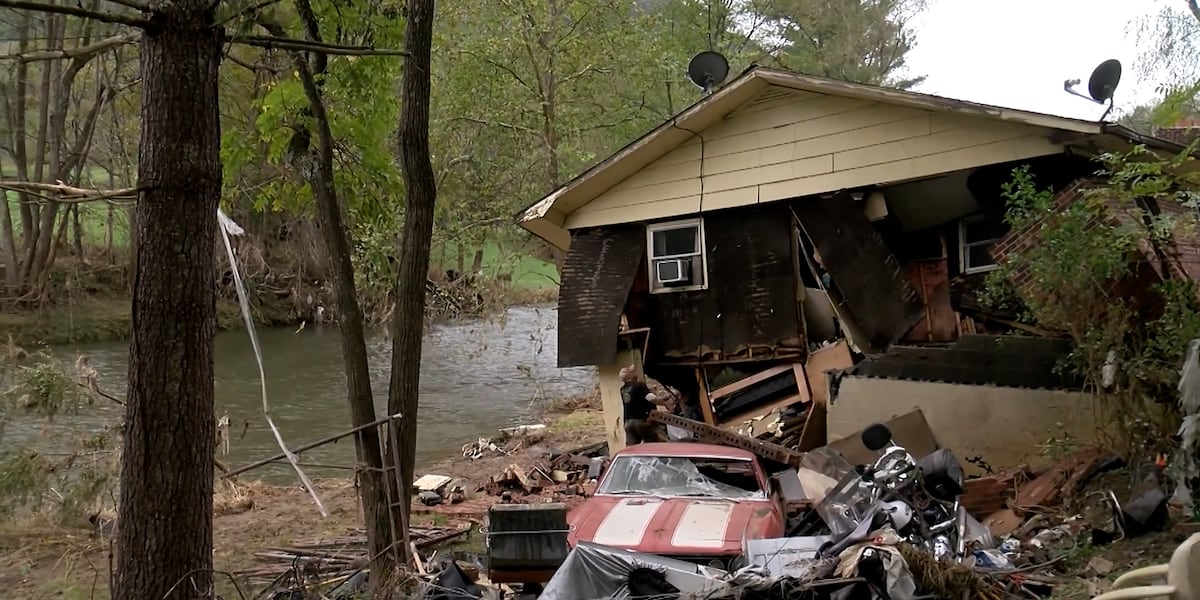
 www.wbtv.com
www.wbtv.com
Here is the WBTV news story on YouTube
There is a link to this article and the bottom and a news clip from WPTV's YouTube channel.
By David Hodges
Updated: Oct. 5, 2024 at 6:00 AM EDT
CHARLOTTE, N.C. (WBTV) - When Kim Wooten sees the devastating videos of Helene’s destruction, she thinks about her five years serving on the North Carolina Building Code Council.
Trickling streams in the mountains turned to raging rivers after the hurricane dumped record setting rain. The world has watched as flood waters wiped away roads, homes and entire neighborhoods.
Wooten thinks about the various building code updates that have been blocked or excluded. Codes that could have made some of the structures safer.
“It’s the General Assembly and the North Carolina Home Builders Association,” Wooten said. “Both of those entities have effectively blocked the ability of homebuyers to purchase a home that is built to modern standards, that has been inspected to meet modern standards, that is efficient and affordable.”
A WBTV Investigation is shining a light on how North Carolina lawmakers and lobbyists weakened the state’s building code for years before Hurricane Helene hit. The history reveals a pattern of bills sponsored by legislators who own construction companies, supported by a political action committee that has spent more than $4 million over four years on their preferred candidates.
Wooten, an electrical eningeer, has been vocal about the influence the NC Home Builders Association has had over the building code council and general assembly. She says the devestation in mountain communities provides yet another example.............................................
Here is the full article on the WBTV website

North Carolina lawmakers erode building code for years before Helene hit
A WBTV Investigation is shining a light on how North Carolina lawmakers and lobbyists weakened the state’s building code for years before Hurricane Helene hit. The history reveals a pattern of bills sponsored by legislators who own construction companies, supported by a political action...
Here is the WBTV news story on YouTube

